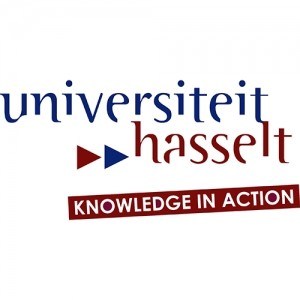Photos of university / #uantwerpen
The Master of Laws (LL.M.) at the University of Antwerp offers a comprehensive and in-depth legal education designed to prepare students for diverse careers within the legal profession, academia, or policy-making. This program provides students with a solid foundation in fundamental legal principles while also enabling specialization in various legal disciplines such as international law, European law, criminal law, and human rights law. The curriculum is structured to balance theoretical understanding with practical application, fostering critical thinking, analytical skills, and a nuanced understanding of the complex legal systems that operate at national, European, and international levels.
Students will have the opportunity to engage with renowned faculty members who are experts in their fields, participate in interactive seminars, and undertake research projects that enhance their legal reasoning and writing capabilities. The program emphasizes internationalization and encourages students to explore comparative legal systems, the impact of global policy on domestic legal frameworks, and the legal aspects of international cooperation. Through a combination of coursework, internships, and research, students are equipped to address contemporary legal challenges and contribute effectively to legal practice or academia.
The Master of Laws at the University of Antwerp promotes an encouraging learning environment that fosters intellectual curiosity and professional development. Its flexible structure allows students to tailor their study plans according to their interests and career aspirations by choosing from a variety of elective courses and specializations. Additionally, the program offers opportunities for joint degrees and exchanges with partner universities worldwide, enriching students' cultural perspectives and expanding their professional network.
Graduates of the Master of Laws at the University of Antwerp will be well-prepared to excel in roles such as legal advisors, compliance officers, public prosecutors, policy consultants, or academic researchers. They will also possess the knowledge and skills necessary to navigate complex legal challenges in multinational and multicultural contexts. With its focus on international law and a forward-looking approach to legal education, the program aims to develop proactive and responsible legal professionals ready to make a meaningful impact in society and the global legal community.
First Year
Mandatory Courses
- Global Legal Systems
- Law of the European Union
- Constitutional Principles and Human Rights
- Private International Law
- Public International Law and International Enforcement
Methodological Courses
- Legal Research Methodology
- Empirical Research Methods in Law
- Academic Writing, Oral and Communication Skills
Master's Project I
- Master Project 1 - Internship
- Master Project 1 - Research Proposal
Modules
Module Multilevel Constitutionalism
- Advanced Course on Constitutional Law of the European Union: Institutions and Instruments'
- Advanced Course on Institutional Dynamics in Multilevel Constitutionalism
- Comparative Federalism
- International and European Immigration and Asylum Law
Module Sustainable Development and Human Rights
- Advanced Course on International Law and Sustainable Development
- Advanced Course on Human Rights and Global Justice
- Law in Developing Countries
- External Actors in Aid, Trade and Investment
Second Year
In addition to your Master's Project part 2 and two elective courses you choose two modules, one for each semester.
Electives: choose two courses for a total of 6 credits
- European Cyberlaw
- External Relations of the European Union
- International Insolvency Law
- International Criminal Law
- European and Comparative Discrimination Law
Master's Project II
- Master Project 2 - Master Thesis
Modules
Module Law and International Busines
- Advanced Course on European Competition Law in Context
- Advanced Course on International Trade and Investment Law
- European, International and Comparative Intellectual Property Law
- Legal Issues of International Employment
Module Private Autonomy
- Advanced Course on International Family Law
- Advanced Course on Private international Law and Dispute Settlement in the Law of Obligations
- Harmonised Private Law
- International and European Health Law
Module Multilevel Constitutionalism
- Advanced Course on Constitutional Law of the European Union: Institutions and Instruments
- Advanced Course on Institutional Dynamics in Multilevel Constitutionalism
- Comparative Federalism
- International and European Immigration and Asylum Law
Module Sustainable Development and Human Rights
- Advanced Course on International Law and Sustainable Development
- Advanced Course on Human Rights and Global Justice
- Law in Developing Countries
- External Actors in Aid, Trade and Investment
Requirements
- Applicants should hold an academic Bachelor’s degree in the related area. Students who are still completing their Bachelor’s degree are also encouraged to apply. They should submit an official letter in English from their university confirming that the student is expected to finalise her/his Bachelor’s studies at the end of the current academic year, and submit up-to-date authenticated transcripts with the results of the previous years.
- Applicants are also required to submit a GMAT or GRE test score. Both the verbal and quantitative score will be taken into consideration.
- TOEFL (Test of English as a Foreign Language): paper-based TOEFL level of minimum 550, a computer-based TOEFL level of minimum 213 or an internet-based TOEFL level of minimum 80. You can find more information about TOEFL at www.toefl.org
- IELTS (International English Language Testing System): a minimum score of at least 6.5, and on each part minimum 6.0. You can find more information about IELTS at www.ielts.org;
- A copy of your valid passport or identity card/a curriculum vitae
- A motivation letter
- A legalised copy of your degree certificate (please read more information on legalisation)
- Applicants that are enrolled in the final year should submit an original and signed letter from their college or university confirming that they are expected to finalise the program at the end of the current academic year
- A copy of your academic transcripts, provided with a stamp of the university
Scholarships
- VLIR-UOS: scholarships for students from developing countries: Scholarships are available for students from 54 scholarship countries in Africa, Asia and Latin-America to follow a training or master programme at the University of Antwerp.
- ASEM-DUO: Scholarships are available for students from China, India, South-Korea and Vietnam.
- Transition Fellowship Programme: Scholarships are available for students from 4 countries in transition (Brazil, Morocco, South Africa and Turkey).
- Mastermind: Scholarships are available for international students who want to take up a master degree programme.
- Global Study Awards: An individual global study award with a maximum value of £10000
The Law program at the University of Antwerp is designed to provide students with a comprehensive understanding of legal principles, institutions, and systems. The program offers a multidisciplinary approach, combining theoretical knowledge with practical skills to prepare students for diverse careers in law, public administration, or private enterprise. Throughout the course of study, students explore various areas such as constitutional law, criminal law, administrative law, commercial law, and European Union law, ensuring a well-rounded legal education. The curriculum includes lectures, seminars, workshops, and internships, encouraging active participation and real-world application of legal concepts. The program emphasizes critical thinking, analytical skills, and effective communication, preparing graduates to interpret and apply legal rules in complex situations. Students also have opportunities for international exposure through Erasmus+ exchanges and international law courses, broadening their perspective on global legal issues. The faculty comprises experienced academics and legal practitioners who bring practical insights into the classroom. Graduates of the program are equipped to pursue careers as legal advisors, policymakers, or advocates, and many find employment in law firms, government agencies, or international organizations. The University of Antwerp's Law program is recognized for its quality and relevance, with a focus on developing responsible professionals capable of contributing meaningfully to society.



